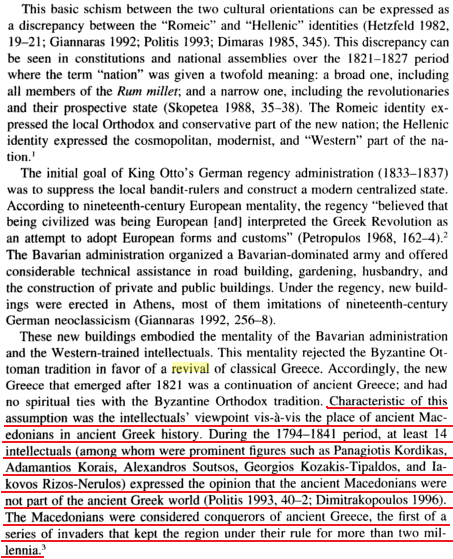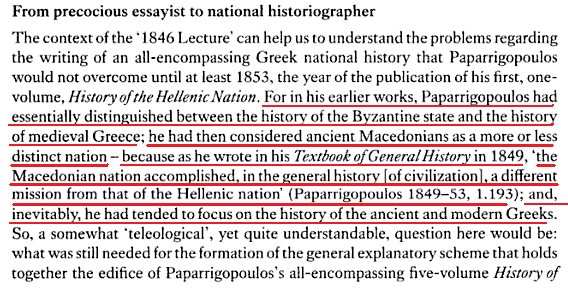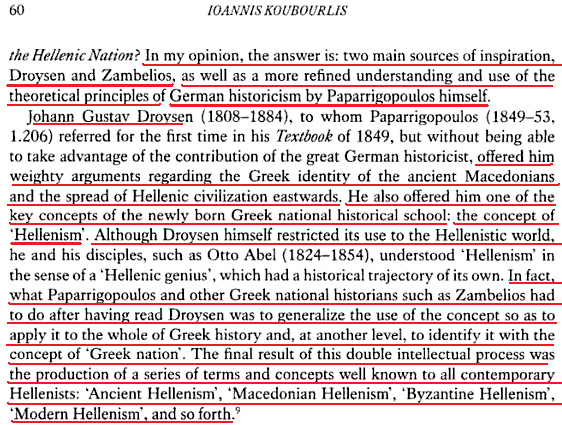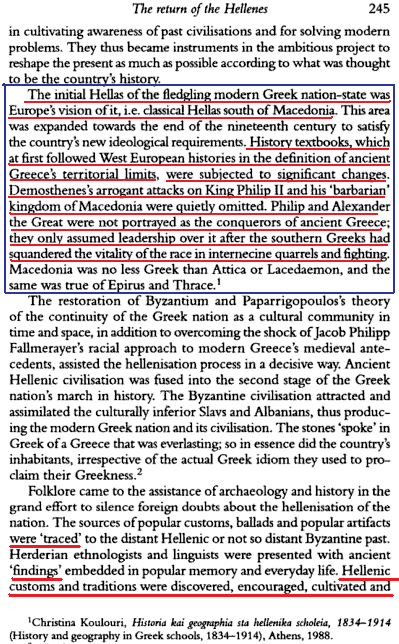Agamoi
Here's a snippet from one of your own posts which you'll probably fail to see the irony in, have a read and tell me if you find anything ironic in this text:-
[QUOTE][Dionysios Pyrros also wrote a history of Alexander the Great in 1845,with the following description on the preface:
"Life,deeds and exploits of the Macedonian Alexander the Great:composed out of the writings of ancient Hellene authors and interpreted in Neohellenic,with the ancient and the modern names of the cities and of their current inhabitants,with the addition of a map of Alexander's campaign.Printed for first time now,to the benefit of the studious Hellenes"
/QUOTE]
Here's a snippet from one of your own posts which you'll probably fail to see the irony in, have a read and tell me if you find anything ironic in this text:-
[QUOTE][Dionysios Pyrros also wrote a history of Alexander the Great in 1845,with the following description on the preface:
"Life,deeds and exploits of the Macedonian Alexander the Great:composed out of the writings of ancient Hellene authors and interpreted in Neohellenic,with the ancient and the modern names of the cities and of their current inhabitants,with the addition of a map of Alexander's campaign.Printed for first time now,to the benefit of the studious Hellenes"
/QUOTE]













Comment